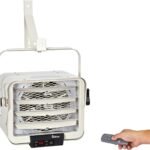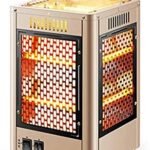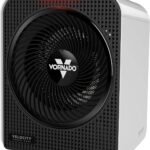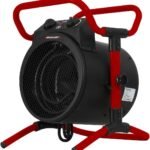Embarking on a journey to understand your new tankless water heater? You, my friend, are at the right place. This article is crafted just for you, to unravel if your tankless water heater actually requires a special installation. With this read, you’ll get a grasp of not just the initial setup, but also an insight about maintenance nuances. Together, let’s explore the knowledge realm of tankless water heaters and its installations.
Understanding Tankless Water Heaters
Have you ever thought about the device that helps you enjoy hot showers, especially on chilly winter mornings? Well, that’s your faithful water heater in action! Now, let’s shift our focus to an increasingly popular option among contemporary homeowners—yes, you guessed it right, the tankless water heaters.
What is a Tankless Water Heater?
Unlike their traditional storage tank counterparts, tankless water heaters, as their name suggests, don’t store hot water. Instead, they heat water directly as and when it flows through the device, ensuring you an endless supply of hot water, whenever needed.
How do Tankless Water Heaters Work?
It’s natural for you to wonder: ‘No storage, but instant hot water? How’s that possible?’ Well, the science behind it is quite straightforward. As you turn on your hot water tap, cold water runs through a pipe into the unit where a heating element (either gas or electricity) heats the water instantaneously. So, you get hot water right when you need it, without waiting for a tank to fill up.
Types of Tankless Water Heaters: Gas and Electric
Broadly, you can categorize tankless water heaters into two types: Gas and Electric. Gas tankless water heaters use a burner to heat the water, while electric ones make use of an electric resistance coil. Each has its own benefits. Gas units typically have a higher flow rate, ensuring a better supply of hot water. On the other hand, electric units are usually smaller, easier to install and often have lower upfront costs.
Requirements for Installing Tankless Water Heaters
Now that you’ve got a basic understanding of what tankless water heaters are and how they work, let’s take a look at what you need for installation.
Space Requirements
One key advantage of going tankless is its compact size. These units are small enough to be installed in confined spaces. Some models can even be wall-mounted to save floor space. However, bear in mind that they do need some clearance around them for proper ventilation and accessibility for maintenance.
Fuel Source Requirements
As mentioned, tankless water heaters can run on gas or electricity. Therefore, you’ll need to ensure access to a gas line or adequate electrical power supply, depending on your chosen model.
Ventilation Requirements
While electric models don’t require any special venting, gas versions need proper ventilation to let out the combustion gases. Typically, that means installing a dedicated vent pipe.
Water Supply Requirements
Moreover, you also need to assess your home’s water supply capacity. Is it capable of supplying enough water for the heater to function optimally? If not, necessary adjustments ought to be made.
Do Tankless Water Heaters Need Special Installation?
When it comes to the installation of tankless water heaters, it’s a bit more complex than their traditional counterparts.
Defining ‘Special Installation’
By ‘special installation’, we mean a set-up process that may involve tasks beyond a simple like-for-like replacement of a water heater. It may include modifying the home infrastructure, dealing with a hard water supply, or setting up new connections to the energy source.
Why Tankless Water Heaters are Different
Tankless units, owing to their unique technology and operating style, sometimes require special handling. Firstly, while size-wise they are smaller, they tend to draw more power and hence, might need a dedicated gas line or increased electrical capacity. Similarly, ventilation requirements for gas models are also specific.
Situations that Require Special Installation
If your home has never had a water heater before or if you’re switching from a traditional to a tankless unit, chances are you might need special installation. This could involve setting up new power and water supply connections or making room for the unit.
Dealing with Old Water Heater Systems
One of the significant challenges during installation is dealing with your old water heater system.
Removing Old Water Heaters
Getting rid of your old, bulky tank water heater requires careful ought to not to damage any existing connections or structures. It’s a task best left to professionals who know how to handle it safely and efficiently.
Modifying Existing Infrastructure
Once your old unit is removed, the next step is to modify your existing infrastructure. This may include updating the gas line or electrical circuit to meet the demands of the new unit, enhancing the water supply capacity, or installing a new ventilation system for gas models.
Transitioning from Traditional to Tankless Systems
As you transition from a traditional system, you might wonder about the changes it would bring. Well, while the process may seem daunting at first, with professional help, it usually is pretty smooth. And the benefits you reap in terms of efficiency, space-saving, and longer lifespan make it a rewarding decision.
Installing Gas Tankless Water Heaters
Now let’s delve into the specific installation requirements of a gas tankless water heater.
Gas Supply Requirements
Gas versions of tankless water heaters need a secure and substantial gas supply. Your existing gas line might serve the purpose, or it might need upgrading. Only a professional can help you decide.
Ventilation for Gas Units
Since gas versions burn fuel, they require good ventilation to expel the combustion gases safely. You might need to add a new vent pipe that leads outdoors, ensuring a safe and efficient setup.
Special Concerns with Gas Tankless Heaters
Gas heaters require a great deal of caution during installation. Ensuring no leaks in the gas line, abiding by regulation codes, and handling the fuel burner safely are concerns better handled by a professional.
Installing Electric Tankless Water Heaters
Taking about electric tankless water heaters, there are a few specifics to know about as well.
Electrical Requirements
Electric models need a dedicated electric circuit with sufficient capacity to handle the demand. This may involve upgrading your existing service panel, which should ideally be done by a licensed electrician.
Situating the Unit in the Home
As for where to install the unit, you have a bit more leeway with electric models. They can be fit in smaller, enclosed spaces due to not needing venting. However, remember to install it close to your point of use for the most energy savings.
Special Concerns with Electric Tankless Heaters
While electric heaters eliminate the need for venting and gas lines, they draw large amounts of electrical power. Hence, it’s crucial to ensure your wiring and electrical system can safely sustain the increased load.
Potential Challenges in Installation
While the advantages of tankless water heaters are many, some challenges might exist on your path to enjoyment.
Dealing with Hard Water
Hard water has a high mineral content which can build up inside your water heater, reducing its efficiency over time. You may need to install a water softener in case your area has a hard water supply.
Managing High Demand
While tankless heaters provide endless hot water, an extremely high simultaneous demand might strain the unit. If you’re expecting high usage, consider installing multiple units or opting for a model designed to meet such high demands.
Handling Variable Water Pressure
If your water supply pressure fluctuates, it can impact your tankless heater’s performance. It’s advisable to address this issue before installing the unit.
Importance of Professional Installation
From all the points mentioned above, it’s clear that professional installation for a tankless water heater is beneficial and often crucial.
Safety Concerns
Installing such a unit involves handling potentially dangerous elements like gas or large amounts of electricity. Neglecting safety guidelines can lead to serious consequences.
Guaranteeing Optimal Function
Professional services have the required training and experience to ensure the water heater is set up to function at its optimal capacity.
Correctly Handling Special Installation
Special installation circumstances add another layer of complexity, making professional involvement even more valuable.
Long-Term Maintenance of Tankless Water Heaters
After installation, it’s crucial to maintain your tankless water heater to enjoy its full benefits.
Regular Inspections
Regular professional inspections are essential to keep track of the unit’s condition, allowing early detection of any potential issues and prevention of costly repairs.
Preventing Scale Build-Up
Regular descaling is especially important if your water supply is hard. This will prolong the unit’s lifespan and maintain efficient operation.
Addressing Technical Problems
Lean on professional troubleshooting and repair services to address technical problems that can arise.
Cost Considerations for Special Installation
Let’s finally discuss the cost incurred for special installation.
Installation Fee Variation
The cost of installing tankless water heaters can vary broadly depending on a range of factors like the type of heater, current home infrastructure, local labor rates and any special circumstances.
Impacts on Energy Bills
Although upfront costs might be higher with a tankless system, you can expect noticeable savings on your energy bills due to their increased efficiency.
Long-Term Cost Savings
Despite the initial investment, over time, thanks to their energy-saving function and longer lifespan, a tankless water heater does prove to be a cost-effective choice.
In conclusion, while tankless water heaters do require keen consideration and potentially special installation, the benefits they provide in long-term energy efficiency and endless hot water supply make them an excellent choice for your home. However, it is highly recommended to get their installation and maintenance done by professionals to ensure safety and optimal function. With the right guidance and professional help, you can enjoy hot water, anytime, for years to come!









